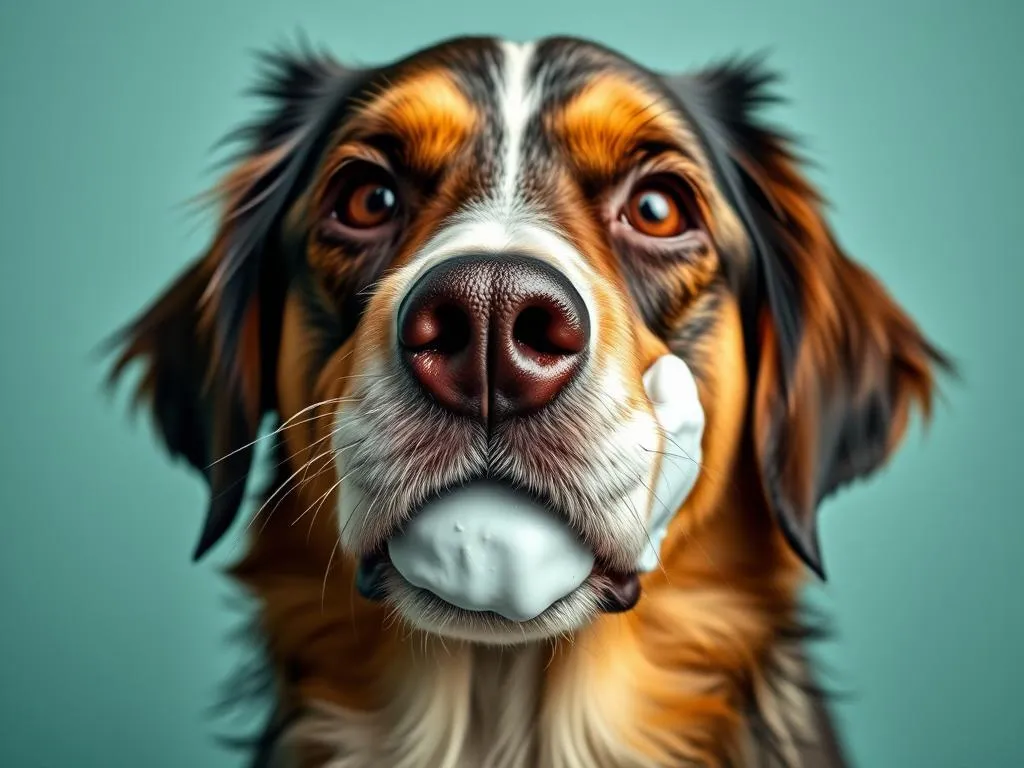
Introduction
Maintaining your dog’s health is an essential responsibility as a pet owner, and one critical aspect often overlooked is oral hygiene. Just like humans, dogs can suffer from a variety of dental issues if their teeth and gums are not properly cared for. With the increasing awareness of pet health, many dog owners are asking, “Can dogs use human toothpaste?” This question is vital because the health of your dog’s teeth can significantly affect their overall well-being.
Importance of Oral Hygiene in Dogs
Dental health is not merely about maintaining a bright smile; it plays a crucial role in a dog’s health. According to various studies, up to 80% of dogs show signs of dental disease by the age of three. Poor oral hygiene can lead to severe consequences such as tooth loss, infections, and even systemic health issues that can affect the heart, liver, and kidneys.
Purpose of the Article
This article aims to clarify whether dogs can use human toothpaste and provide alternatives along with tips for maintaining your dog’s dental health. Understanding the differences between human and canine dental care products is essential for ensuring your furry friend stays healthy and happy.
Understanding Canine Dental Health
Importance of Dental Care for Dogs
Dental disease is one of the most common health problems in dogs. If left untreated, plaque and tartar can build up on the teeth, leading to gum disease and other serious health issues. Some alarming statistics reveal that untreated dental disease can result in:
- Chronic pain and discomfort
- Loss of teeth
- Infections that spread to other organs
Common Dental Issues in Dogs
Several dental issues can affect your dog, including:
- Plaque Buildup and Tartar: Plaque is a sticky film of bacteria that forms on teeth. If not removed, it hardens into tartar, leading to further complications.
- Gingivitis and Periodontal Disease: Gingivitis is the inflammation of the gums, while periodontal disease is a more severe condition that affects the supporting structures of the teeth.
- Bad Breath (Halitosis): Often a sign of underlying dental problems, bad breath can be a significant indicator that your dog needs dental care.
Understanding these issues highlights the need for regular dental care to keep your dog’s mouth healthy.
Human Toothpaste vs. Dog Toothpaste
Ingredients in Human Toothpaste
Human toothpaste typically contains several ingredients that can be harmful to dogs:
- Fluoride: While it helps prevent cavities in humans, fluoride can be toxic to dogs and lead to symptoms like vomiting, drooling, and even seizures.
- Xylitol: This artificial sweetener is extremely toxic to dogs and can cause liver failure, seizures, and even death.
It’s clear that human toothpaste is not formulated with canine health in mind.
Ingredients in Dog Toothpaste
On the other hand, dog toothpaste is specifically designed for canine use. It contains:
- Enzymatic Cleaners: These ingredients help break down plaque and tartar without the need for foaming agents.
- Flavors Appealing to Dogs: Dog toothpaste comes in flavors like poultry or peanut butter, making the brushing experience more enjoyable for your furry friend.
Using toothpaste designed for dogs ensures that you are contributing positively to their dental health.
Can Dogs Use Human Toothpaste?
Risks of Using Human Toothpaste
The question “Can dogs use human toothpaste?” is straightforward: no, they should not. The risks involved with using human toothpaste include:
- Toxicity Concerns: Ingredients like fluoride and xylitol pose significant health risks to dogs, potentially leading to serious medical conditions.
- Potential for Gastrointestinal Issues: Even non-toxic human toothpaste can lead to gastrointestinal upset in dogs, resulting in vomiting or diarrhea.
Expert Opinions
Veterinarians unanimously recommend against using human toothpaste for dogs. Studies underscore the importance of using products specifically formulated for canine dental health. Most experts agree that the risks associated with human toothpaste far outweigh any potential benefits.
Alternatives to Human Toothpaste
Recommended Dog Toothpaste Brands
When it comes to choosing toothpaste for your dog, there are several vet-approved brands that you can consider:
- Vet’s Best Enzymatic Dog Toothpaste: Known for its natural ingredients that help reduce plaque and tartar.
- PetSmile Professional Dog Toothpaste: Approved by the Veterinary Oral Health Council, it effectively prevents plaque buildup.
- Nylabone Advanced Oral Care Dog Toothpaste: Contains baking soda for a deep clean and is available in flavors that dogs love.
When selecting a toothpaste, look for features like enzymatic action and flavors that appeal to your dog.
DIY Dog Toothpaste Recipes
For those who prefer a homemade option, making DIY dog toothpaste can be simple and effective. Here are a couple of easy recipes:
- Baking Soda and Water Paste:
- Mix 1 tablespoon of baking soda with enough water to form a paste.
-
Baking soda is safe and helps neutralize bad odors.
-
Coconut Oil and Peanut Butter Paste:
- Combine 1 tablespoon of coconut oil with 1 tablespoon of peanut butter.
- Ensure the peanut butter is xylitol-free, as xylitol is toxic to dogs.
Instructions and Safety Precautions
When making your own toothpaste, ensure all ingredients are safe for dogs. Always introduce new flavors gradually and monitor for any adverse reactions.
Maintaining Your Dog’s Dental Health
Regular Dental Check-ups
Just like humans, dogs need regular dental check-ups. Veterinary dental exams can identify any potential issues early on. During a dental check-up, expect:
- Assessment of Oral Health: The vet will check for plaque, tartar, and signs of gum disease.
- Professional Cleaning: If necessary, your dog may receive a professional dental cleaning under anesthesia.
Daily Dental Care Routines
Creating a daily dental care routine is essential for maintaining your dog’s oral health:
- Brushing Techniques and Frequency: Aim to brush your dog’s teeth at least 2-3 times a week. Use a toothbrush designed for dogs and apply gentle pressure.
- Use of Dental Chews and Toys: Consider incorporating dental chews and toys into your dog’s routine. These can help reduce plaque and tartar buildup while keeping your dog entertained.
Signs of Dental Problems to Watch For
Keep an eye out for signs indicating that your dog may need veterinary dental care, such as:
- Excessive Drooling: This can indicate oral pain.
- Difficulty Eating: If your dog is reluctant to eat or shows signs of discomfort while chewing, it may be time for a check-up.
- Bad Breath: A sudden change in your dog’s breath can be a sign of dental disease and should not be ignored.
Early intervention is crucial in preventing serious dental issues from developing.
Conclusion
In summary, the answer to the question, “Can dogs use human toothpaste?” is a resounding no. Utilizing products specifically designed for dogs is essential to ensuring their dental health. Keeping up with regular dental care, understanding the risks associated with human toothpaste, and knowing the signs of dental problems can help you maintain your dog’s oral hygiene effectively.
Prioritizing your dog’s dental health is not just about keeping their breath fresh; it’s about ensuring their overall health and well-being. Remember, a happy dog is a healthy dog!
FAQs
Can I use baking soda as a toothpaste for my dog?
Yes, baking soda can be used as a safe ingredient in homemade dog toothpaste, as it helps neutralize odors and can assist in cleaning.
How often should I brush my dog’s teeth?
It is recommended to brush your dog’s teeth at least 2-3 times a week to maintain optimal dental health.
What are the best dental chews for dogs?
Look for dental chews that are vet-approved and contain ingredients that help reduce plaque and tartar. Brands like Greenies and Nylabone are popular choices.
Are there any home remedies for dog dental care?
While regular brushing is the best practice, you can also use safe ingredients like coconut oil, baking soda, and parsley to help maintain your dog’s oral hygiene. However, always consult with your veterinarian before introducing new remedies.









